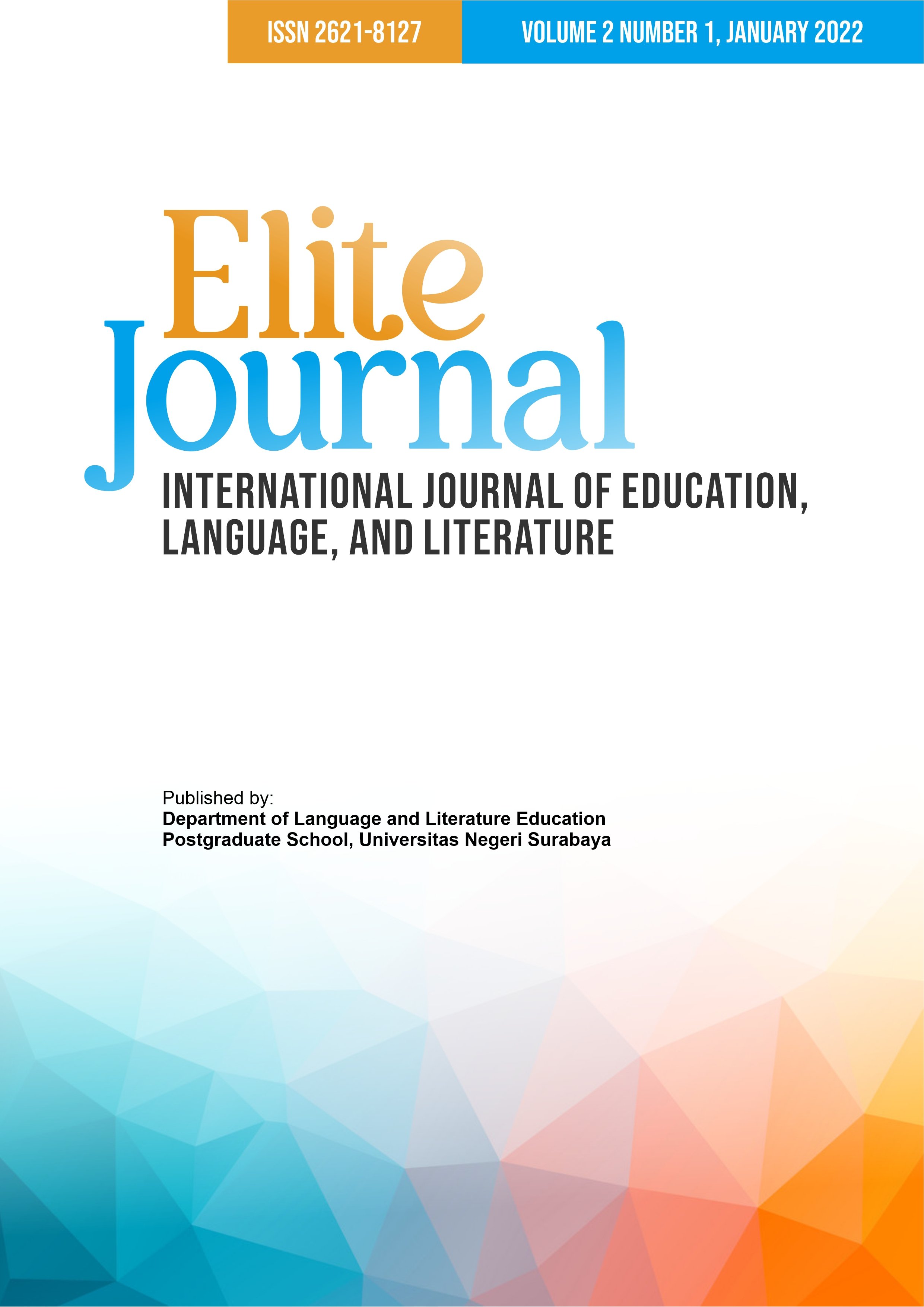INVESTIGATING EFL STUDENTS’ LISTENING COMPREHENSION: PROBLEMS AND CAUSES
DOI:
https://doi.org/10.26740/elitejournal.v2n1.p12-25Keywords:
listening, problems, causes, comprehensionsAbstract
Listening comprehension is essential in the learning process, especially for EFL students. However, the students still tend to have problems in listening comprehension that hinder their learning performance. Additionally, the students in the recent semester are studying from home with different situations and equipment than in the listening class. This research aimed to identify the higher education EFL students' listening comprehension problems and the factor causing them. This research used the qualitative approach. It was found that the students had four major issues in learning to listen. The primary concern is unfamiliar words that the students encountered which slowed the students to think about the meaning of those words and missed the next part of the speech. They are also troubled with their memory because they may easily forget about the word they just listened to in the long-spoken text. The other problem is related to the rate of delivery, where the students are hard to keep up with the speaker if it is too fast. A variety of accents also troubled the students to understand the spoken text because they are not used to another accent than American. The main reason the students have these problems is that their lack of practice outside the listening class makes them lack vocabulary, anxiety, and nervousness while doing the listening task. It makes it hard to think and lose focus—lastly, poor-quality recording and noisy surroundings disturb their listening concentration.
References
Arikunto, S. (2010). Prosedur Penelitian Suatu Pendekatan Praktik. Rineka Cipta.
Bloomfield, A., Wayland, S. C., Rhoades, E., Blodgett, A., Linck, J. A., & Ross, S. J. (2010). What Makes Listening Difficult? Factors Affecting Second Language Listening Comprehension. College Park: MD, University of Maryland Center for Advanced Study of Language. https://doi.org/10.21236/ada550176
Brown, H. D. (2004). Language Assessment Principles and Classroom Practices.
Cohen, L., Manion, L., & Morrison, K. (2000). Research Methods in Education (5th ed.) (p. 464). Routledge. https://doi.org/10.4324/9780203224342
Denzin, N. K. (2017). The Research Act. Routledge. https://doi.org/10.4324/9781315134543
Fraenkel, J. R., Wallen, N. E., & Hyun. (2012). How to Design and Evaluate Research in Education. McGraw-Hill.
Gao, L. (2014). An exploration of l2 listening problems and their causes [University of Nottingham]. http://eprints.nottingham.ac.uk/28415/1/Liping final thesis 31-10-2014 updated %28printed%29.pdf
Maresta, M. (2018). An Investigation of Listening Comprehension Problems Encountered by the 4th Semester of English Students at Sriwijaya University. Sriwijaya University, Palembang.
Miles, B. M., & Huberman, A. M. (1994). Qualitative Data Analysis (Second Edi). SAGE Publications, Inc.
Rost, M. (2001). Teaching and Researching Listening. London, UK: Longman.
Yagang, F. (1994). Listening: Problems and Solutions.
Downloads
Published
How to Cite
Issue
Section
License
Copyright (c) 2021 Muhammad Adi, Nasrullah Nasrullah, Elsa Rosalina

This work is licensed under a Creative Commons Attribution 4.0 International License.
 Abstract views: 1798
,
Abstract views: 1798
, PDF Downloads: 1489
PDF Downloads: 1489





